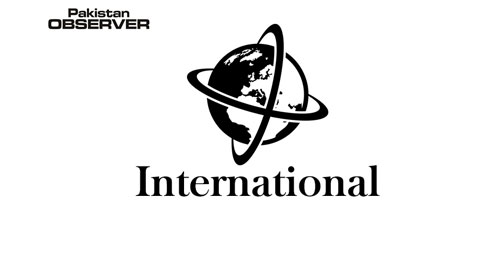Oil prices broke past $100 and safe havens surged while equities, including the Pakistan Stock Exchange’s benchmark 100 index, tumbled on Thursday after Russian President Vladimir Putin announced a “military operation” in Ukraine, accelerating fears of a major war.
Oil prices rocketed more than five percent with Brent moving within spitting distance of the $100 not seen since September 2014, while safe havens surged.
Gold hit its highest since January 2021, while the Japanese yen piled higher against the dollar and the Swiss franc hit a five-year high on the euro.
The dollar was up nine percent against the ruble, which has been battered in recent weeks on worries about the impact of sanctions on the Russian economy, while the Moscow Stock Exchange plunged almost 14 percent after suspending trading earlier in the day. The country’s central bank said it was intervening to “stabilise the situation”.
On equity markets, Hong Kong, Sydney, Singapore and Wellington lost at least three percent, while Seoul, Mumbai, Taipei and Manila fell more than two percent. There were also steep losses in Tokyo, Shanghai, Jakarta and Bangkok “It is hard to find any reasons for the selloff to reverse now that it appears the tanks are rolling,” said OANDA’s Jeffrey Halley.
“Stronger sanctions are to come on Russia and energy prices will inevitably head higher in the short term.” Ukrainian President Volodymyr Zelensky had earlier warned Russia could start “a major war in Europe” in the coming days.
The impact of Russia-Ukraine conflict and the subsequent global sell-off was evident in the PSX from the opening bell, with the KSE-100 index plunging almost instantly by 926 points to 44,2060.75 at 9:26am.
Following a brief correction, the market continued its downward trajectory and had sunk by 1340.75 points to intraday low of 43,792.17 points. The bourse eventually ended the trading session down -1330.38 (-2.95pc) at 43,802.54.
The stand-off in Europe has provided central banks with a further headache as they move to lift pandemic-era financial support and tighten monetary policy.
Attention is on every utterance from Federal Reserve officials as they prepare to hike interest rates next month, with speculation over how fast and hard it will move.
The stand-off in Europe has provided central banks with a further headache as they move to lift pandemic-era financial support and tighten monetary policy.
Attention is on every utterance from Federal Reserve officials as they prepare to hike interest rates next month, with speculation over how fast and hard it will move.
Commentators said bets are on six increases this year, down from previous forecasts for up to seven, adding the stakes are rising further.
“Policy mistakes at this point in time are almost guaranteed,” Shana Sissel of Banrion Capital Management told Bloomberg Television.
“The question isn’t, ‘Is there going to be a policy mistake?’, but, ‘How bad will it be? Will the Fed hike too much too fast, will they front-load everything?’” And with uncertainty reigning supreme, warnings abound of worse to come, with BNY Mellon Investment Management’s Lale Akoner saying: “Expect volatility to really persist in the next few months.”
Geopolitical risks were flaring at a “very inopportune time”, she added, as traders try to navigate central bank tightening.—AFP










